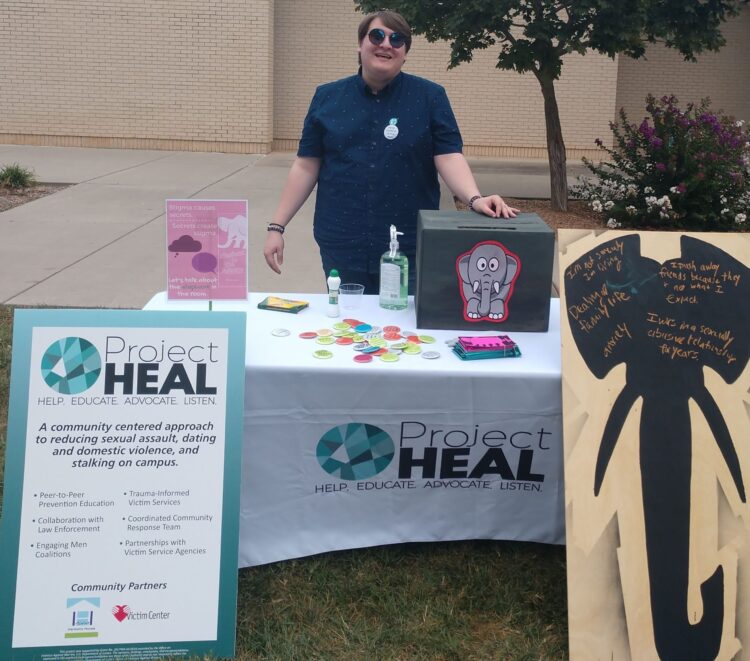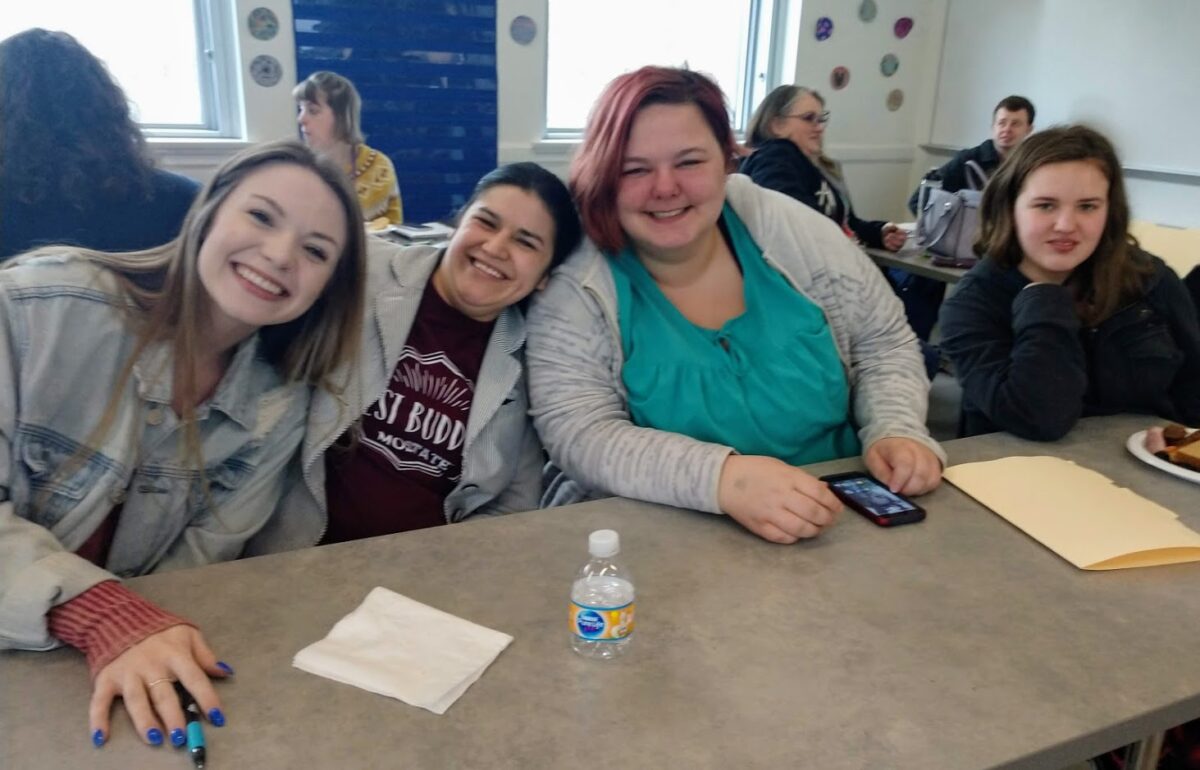Sexual and domestic violence is prevalent in the United States. More than 400,000 rapes and sexual assaults are reported annually.
Out of 101 total grant applications, the U.S. Department of Justice’s Office on Violence Against Women awarded Missouri State University and OTC $550,000 to continue Project HEAL (help, educate, advocate and listen) for another 3 years. The institutions were one of only 15 to receive the continuation funding.
“This is outstanding news,” said Jill Patterson, Missouri State’s Title IX coordinator. “The Project HEAL grant funds important programming and a counselor in our Counseling Center for students who have been victims of interpersonal violence and sexual assault. We are grateful to have been funded for another grant cycle.”
The program began in 2017.
“Project HEAL has greatly improved previous efforts to comprehensively address sexual and domestic violence on campus,” Project Director Kunti Bentley said. “While the relationship between the campuses of MSU and OTC demonstrates a cooperative partnership that has been collaborative in nature, Project HEAL has enhanced these efforts and has made clear the benefits of a unified approach to interpersonal violence prevention and victim services.”
How Project HEAL has changed MSU and OTC
Within the first two years of Project HEAL:
- A robust Coordinated Community Response Team (including 65 on-campus staff, students and faculty, and off-campus experts) developed and began to meet quarterly.
- Regular trainings have been provided to campus safety and law enforcement.
- We established comprehensive, confidential 24-hour victim services and advocacy.
- We established on-going efforts to ensure campus-wide awareness.
- A victim advocate was established at OTC, and a mental health clinician victims services and advocacy specialist was established at MSU.
The statistics show that needs are being addressed:
- There’s been a 37.5% increase in students who used victim services from spring 2018 to fall 2019.
- 165 victims of sexual assault, dating and domestic violence, and stalking have received trauma-informed counseling and advocacy.
- 1,400 students, staff and faculty have received in-person, face-to-face prevention education.
The CCRT has:
- Been trained in the trauma-informed approach to victim services.
- Attended on and off-campus engagements and events that highlight various aspects of awareness, prevention, and victim services.
- Promoted Project HEAL.
- Facilitated trainings and educational opportunities throughout campus community.
According to Bentley, Project HEAL continues to develop ways to provide a systematic, structured, and sustainable campus training program.
“Since the project’s inception, reports of on-campus sexual assault and domestic violence have increased,” Bentley said. “Many staff, faculty and students feel confident this reflects the campuses’ shift to a culture that is more supportive of victims of sexual assault, dating and domestic violence, and stalking and a shift to a campus culture that actively encourages reporting of these crimes as knowledge of existing resources grows.”

Continuing the impact
During the next three years, Bentley says they will promote more prevention education specialists from community victim service agencies to reach more students.
The activities proposed for a second cycle of the grant will be structured to provide unified training, prevention education and comprehensive, trauma-informed victim services to students on each college campus.
“Project HEAL will establish outreach efforts to ensure that the campus population is provided with prevention education and has access to victim services. We will improve and enrich the experience for our CCRT by developing an onboarding process for new members, institutionalizing our CCRT by creating by-laws, establishing a more formal onboarding process for leadership and new members, and assigning clear roles to CCRT members based on each member’s area of expertise.”
Project HEAL will also provide faculty with inclusive prevention education, which will streamline data collection.
Explore resources in the Title IX office
Broadening the plan
According to Bentley, the satellite campuses will be another focus of the plan.
“While the main campuses of MSU and OTC are in an urban area, both serve students at several satellite campuses that lie in geographically rural areas. Missouri State University-West Plains is in West Plains, Missouri. Fall 2018 enrollment was 1,869 students. OTC serves a 12 county service region made up primarily of rural communities. Within the OTC service region, the Missouri Highway Patrol reported 6,042 domestic violence incidents. However, most of these communities are ill-equipped to addressing these incidents. Only four of the 12 counties in the region have a domestic violence service provider.”
COVID and Project HEAL
Due to COVID-19, Project HEAL had to be adapted.
“We pivoted from in-person training and prevention education to utilizing a virtual platform for the sessions,” Bentley said.
Other changes include:
- A multi-session inclusive violence prevention education program via Zoom.
- Updated website with links to resources and recorded prevention presentations.
“These trainings and presentations were created by prevention education staff from our community partners, The Victim Center and Harmony House, and from our Project HEAL Victim Advocate at OTC,” Bentley said. “We are continuing to develop ways to engage the campus community virtually and believe that this is a positive opportunity to create sustainable programming.”
For more information, contact Bentley at KuntiBentley@MissouriState.edu.

